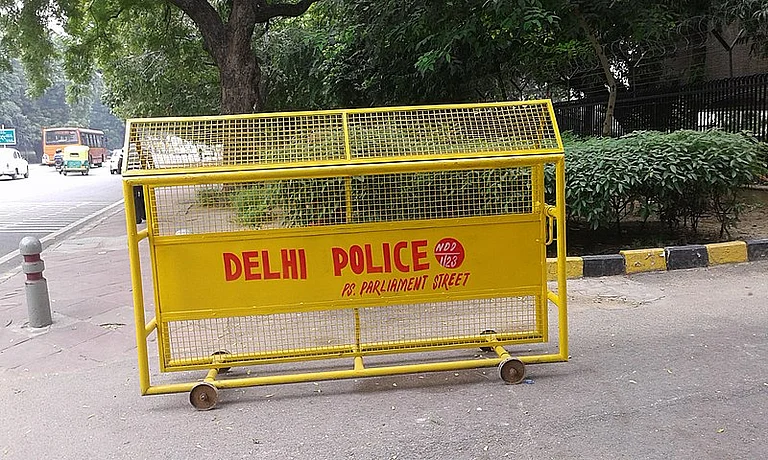The second Earth Summit has opened. The fact that over 100 heads of state and government decided to come toJohannesburg indicates that they are worried. But that is not enough. There is an immense distance betweenworry and practical deeds. Worry was already expressed a decade ago in Rio de Janeiro. But where do we standtoday?
Looking back at the events of the past decade, I feel great anxiety and disappointment. It seemed to manyof us that the end of the Cold War, symbolized by the fall of the Berlin Wall, would at last allow mankind tolook into the future with hope. It seemed that the world community, relieved of the fear of a nuclear war, ofideological confrontation, would start moving along the path of stable development, take urgent actions tocombat poverty and disastrous environmental pollution and change the character of globalization by includingin it notions like solidarity, human rights and freedom of the individual. Regretfully, this chance was usedinsufficiently, to say the least.
Mankind lags behind the demands of the time. Celebrations of the demise of communism have lasted a bit toolong and people lost sight of the complexity of the world, of its problems and contradictions. Poverty andbackwardness were forgotten and outstanding environmental problems were pushed to the backwoods of publicconsciousness.
The events of September 11, 2001, showed that the idea of a mono-polar world is untenable. Even the mostpowerful nation in the world appeared to be powerless before the threat of international terrorism. It onlyremains to hope that this monstrous event will mark the end of illusions, of that false philosophy of amono-polar world produced after the end of the Cold War and the break-up of the USSR.
The Johannesburg summit should become a turning point; it cannot be limited to admission that a dangerexists, but practical actions should be taken without delay to bring about sustainable development. If thepresent leaders fail to do that, if they fail to define the goals and provide required resources, then, I amafraid, the very idea of convocating such forums will be finally discredited.
When the world communist system fell to pieces, the famous French oceanologist Jacques Ives Cousteau saidthe greatest harm to nature had been caused not by communism but by the market economy, for which every thinghas its price but nothing is of value.
I am not calling for a return to communism, but I am inclined to agree with Cousteau. The impendingenvironmental crisis has shown that the use of purely economic criteria (profitability, return of investedcapital) does not allow us to meet the environmental challenge. The market cannot assess what the greatestvalue will be for people in one hundred years. How can one calculate the market value of the beauty of a lakeor of a snow-capped mountain? Who will calculate the expediency of saving "useless" wild animals orhundreds of species of insects?
I remember a talk I had with former U.S. State Secretary George Schultz in 1992. We spoke all night. I toldhim, "You Americans want to export your way of life everywhere. But you consume 44 percent of the world'selectric power. If other countries start living by your standards, all reserves on the globe will be exhaustedwithin a few years."
Today, ten years later, the situation has not improved. Nearly one billion people suffer from starvation,while every fourth person in the U.S. suffers from obesity. Can't people understand that it is a paradox?
Do we realize how abnormal it is that, of the 36 million people having AIDS, 23 million live in Africa? Orthat the number of telephone lines in Tokyo is the same as in the whole of Africa? Or that 130 millionchildren do not go even to elementary school? In Botswana today life expectancy is 41 years. Meanwhile aid tothe poor is decreasing.
In essence responsibility for this rests with the present leaders. The first challenge that they will beunable to evade is the need to preserve peace, to put an end to so-called local conflicts, to prevent bleedingspots from spreading on the globe. Among those involved in such conflicts are also countries possessingnuclear or chemical arms.
The world community should be at one in the struggle against terrorism which can never be justified. Thesecond challenge is combating poverty in the world. How can the "golden billion" of the lucky onesbe happy while half of the world population suffers? The third challenge is the environmental problem. It isobvious that climatic changes are underway in the world today, that the number of natural disasters, typhoons,floods and droughts is increasing. Hundreds of species of plants and animals are disappearing, glaciers aremelting and the ocean is being exhausted.
The three challenges are closely inter-related. Unless we are united in the struggle against war, we willnot be able to stick together for saving our planet. Life on Earth can become merely an ephemeral episode inthe history of the Universe. That is why we should learn to think in a new way. We need a new order based onjustice and equality and not on benefits alone. Nature is giving us distress signals. Time has come to heedthem. The Johannesburg summit cannot become a "Rio + 0". Nature cannot wait any longer.




















